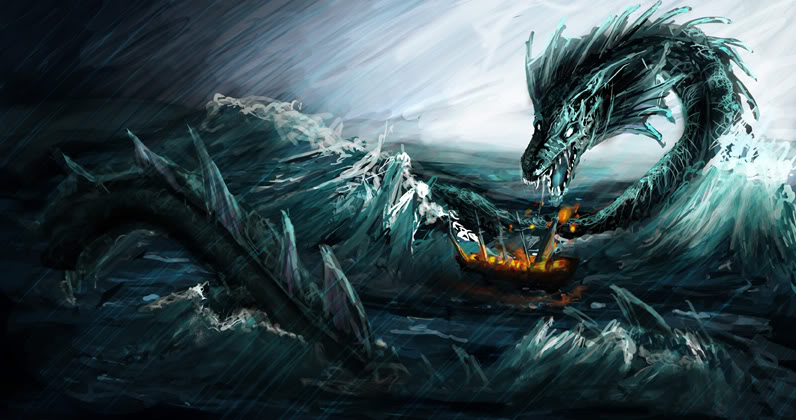GOD LOVES HIS TROUBLEMAKERS!
Most church attenders have been told that to be a good Christian you must be nice, never upsetting anyone, nor getting people angry or riled up or causing any trouble. You need to simply get along with everyone. They expect church people to live peacefully, work diligently in their jobs, responsibly raise their families, and of course, go to church every Sunday. Christians must certainly never complain, oppose authority, resist the governmental laws or use power to force reforms. Judging from the Bible, however, people would have a hard time proving these assertions to be true. In Scripture, most of the greatest men and women of God were known as troublemakers. So if you can’t get along with people and look the other way at their sin and go with the status quo then you are called a troublemaker. You are being made a scapegoat because you have an actual moral compass and will call out the sin and bad behavior in others instead of participating in it, but then be labeled as not being able to get along with everyone.
Joseph caused his brothers to be jealous and hate him to the point that they sold him into slavery. He was then accused of sexually assaulting his master Potiphar’s wife, after he rejected her by not agreeing to have sex with her and then he was thrown into prison for over 3 years. Later, he held his younger brother Benjamin hostage. But ultimately was used powerfully by God by saving all of Egypt and his family with his wisdom and direction.
Moses was considered a troublemaker. He challenged an Egyptian who was abusing a Hebrew, and then killed him. Later, he was asked accusingly, “Who made you ruler and judge over us?” (Exodus 2:14). Pharaoh increased his oppression of the Hebrews, and their leaders blamed Moses. “May the LORD look upon you and judge you! You have made us a stench to Pharaoh and his officials and have put a sword in their hand to kill us” (5:21). When the Egyptian army attacked them at the Red Sea, they cried, “Was it because there were no graves in Egypt that you brought us to the desert to die?” (14:10). But Moses ultimately moved over a million people from slavery to freedom and their children entered God’s Promised Land of Israel.
David was a rebel and outlaw for many years, even working for his people’s sworn enemies. He violated another man’s wife, then had him murdered to cover it up. God would not allow David to build his temple but Jesus’ lineage came through David’s bloodline to Joseph who married Mary.
Esther appeared before the king uninvited which should have caused her to be killed. Instead she was allowed to live and warned him about the evil plot of Haman. She ultimately rescued the certain deaths of thousands of Jews in the Persian empire (Esther 4-6) and then Haman was hung on his own gallows that he built for the Jews.
Elijah arranged to meet King Ahab on Mount Carmel and when Ahab saw him, he asked, “Is that you, you troublemaker of Israel?” (1 Kings 18:17). Elijah proposed a contest with the prophets of Baal and Asherah. He won by having fire come down from heaven to burn up his offering and then had all 850 of Jezebel’s false prophets killed.
In fact, God’s prophets regularly made themselves a nuisance. Ahab said of Micaiah, “I hate him because he never prophesies anything good about me” (1 Kings 22:8). Zechariah was stoned to death, Jeremiah languished in prison: Daniel was thrown into the Lion’s Den for disobeying the King’s edict for praying to God, carnal leaders generally did not like what the prophets had to say, and persecuted and killed them for it.

Now you should not think that troublemaking was limited just to the Old Testament. Jesus threatened the religious leaders of Judea by exposing their hypocrisy and gaining the allegiance of the people; thus they arranged to have him executed. Likewise, John the Baptist angered Herod’s wife, who had him beheaded.
The apostles were arrested in the temple for preaching, but thereafter defied the Sanhedrin’s orders to cease and desist. Peter was imprisoned for preaching; after he escaped, his guards were executed for negligence. Stephen was stoned to death for preaching about Jesus, and John’s brother James executed by Herod. Paul with his companions were flogged at Philippi, stoned at Lystra, threatened by assassins; Paul caused riots in Ephesus and Jerusalem, and was otherwise beaten, threatened, and endangered (see 2 Corinthians 11:23-27).
For two thousand years since then, Christian activists and agitators have caused no end of trouble for those in power and those who benefit from the status quo.
Jesus said that the Gospel would divide families; Christians would be hated, persecuted, and killed. He “did not come to bring peace, but a sword” (Matthew 10:34-36) and a man’s enemies will be those of his own household. The religious leaders of Jesus’ days hated him because He called them out for their hypocrisy and pride. Jesus even had the audacity to heal on the Sabbath! The Lord chose those who are troublemakers in the eyes of the world to accomplish his purpose.
Of course, not all trouble is ordained by God, and if not, should be discouraged. Ungodly trouble brings backlash upon the Church. But in the present world situation, growing worse each year and the end times approaching, we desperately need the kind of troublemakers we read about in Scripture.
When godly troublemakers act, we can expect many in the religious Church to denounce them as such. If they bring hardship and persecution upon us, many will ask, as they questioned Moses, “Who put you in charge of us? You have made us look bad in the eyes of the world! It is your fault that we suffer!” It will require great courage and self-sacrifice to stand in the face of bitter criticism, even that of our own family and church. But in order to live in obedience to God, we must be a troublemaker to the world.









